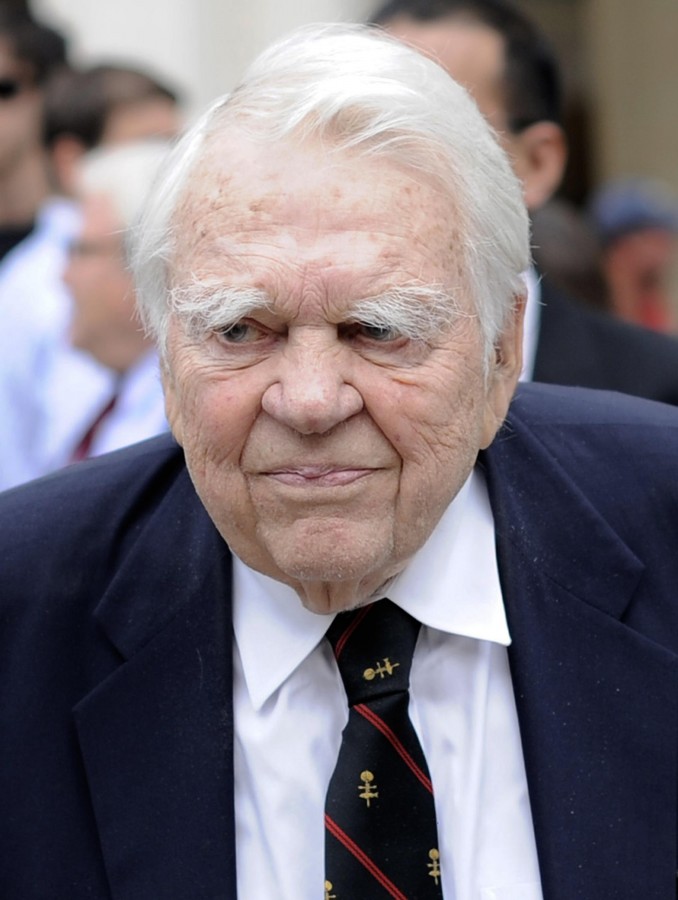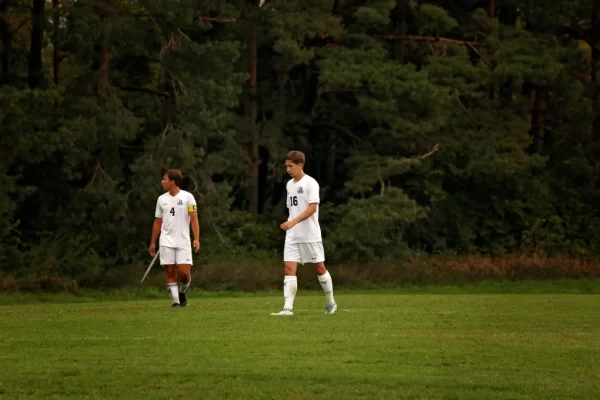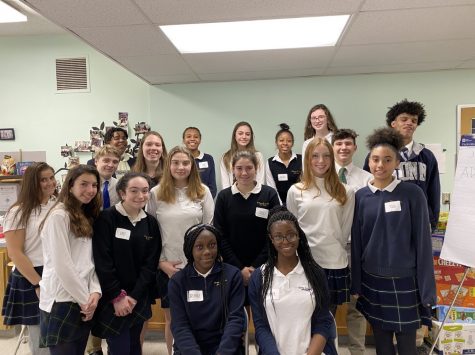A Tribute To Andy Rooney
November 14, 2011
Last Friday, at a New York City hospital, Andy Rooney ‘38 passed away from complications following surgery. The beloved Academy grad and “60 Minutes” curmudgeon was 92, and had only retired from his weekly television essay, “A Few Minutes With Andy Rooney,” about a month ago. Mr. Rooney went into the hospital for an undisclosed surgery about ten days ago, and was re-hospitalized after the complications leading to his death set in.
Andrew Aiken Rooney was born on January 14, 1919, in Albany. His high school years were spent at Academy, a place that he has publicly looked back on with fondness many times, most recently in his final “60 Minutes” appearance, saying, “I went to a very good school, one of the best schools in the country, the Albany Academy”, and later adding, “I was not a good student, but they were good teachers.” He was co-captain of the football team, and president of the Beck Literary Society. From Academy he went on to Colgate University, and then to the Army just before the start of World War II.
While he was originally drafted into the regular army and was trained in the artillery, Rooney made his mark in the war through the written word. While stationed in England, he saw an ad for The Stars and Stripes, the Army newspaper, applied for a transfer, was accepted, and covered the war from the front lines for the next three years. Rooney went into the skies over Europe on three bombing missions over Germany, and two over France, and then covered the ground war, often exposing himself to enemy fire, and was awarded the Bronze Star for running into the thick of one of the bloodiest battles of the war, St. Lo, in order to get an accurate story. He was also one of the first journalists to get a firsthand view inside the concentration camps, an experience that, he said, impressed upon him that some wars, like that one, were in fact necessary.
Once discharged from the Army, Rooney went into television as a writer for Arthur Godfrey, a popular personality of the era, and then CBS, where he wrote essays such as “An Essay on Doors,” that were read on the air by friend and colleague Harry Reasoner. One of these essays, “Black History: Lost, Stolen, or Strayed,” netted Rooney an Emmy, his first of four, plus a Lifetime Achievement Award. In the summer of 1978, however, Rooney’s big break came when he was put on the air to read a self-written essay to close the popular show “60 Minutes”.
“A Few Minutes With Andy Rooney,” as the segment was titled, became so wildly popular that it was put on the air permanently, replacing the political show “Point/Counterpoint.” In the thirty-three years Rooney had the last word on “60 Minutes,” he endeared himself to the American people with essays ranging from the trivial injustices, hilarities, and oddities of American life to major events such as the Columbia Space Shuttle disaster and the Oklahoma City Bombing.
He couldn’t seem to stay clear of trouble, though, and in 1990 was suspended from CBS for three months after gay unions took offense to remarks he made about gays on the air. In the few weeks he was gone, however, the audience of “60 Minutes” decreased dramatically, and he was quickly reinstated. Four years later, he was again the center of controversy when he said, also on the air, that the suicide of Kurt Cobain angered, not saddened, him, stating that “A lot of people would like to have all the years left that he threw away.” He later apologized over both issues.
During his long career, he wrote sixteen books and a weekly column that was published in newspapers around the country, in addition to his work on television. Rooney retired on October 2, after his 1,097th “60 Minutes” essay, and a seventy-year writing career. In his last appearance he said, “I wish I could do this forever. I can’t though,” and only a month later, Rooney died.
Rooney is survived by his four children, Brian, Emily, Martha, and Ellen. His high school sweetheart and wife of 62 years, Margie, passed away in 2004.





